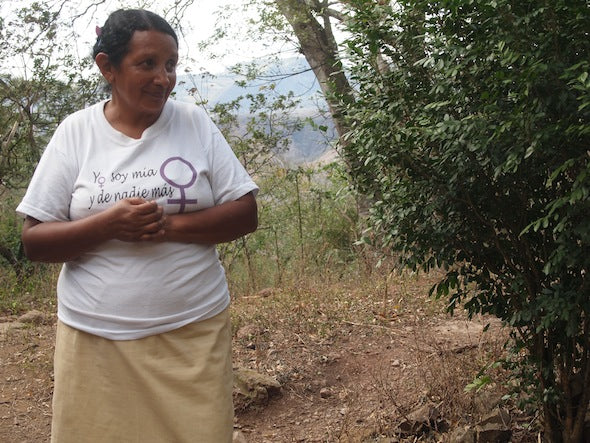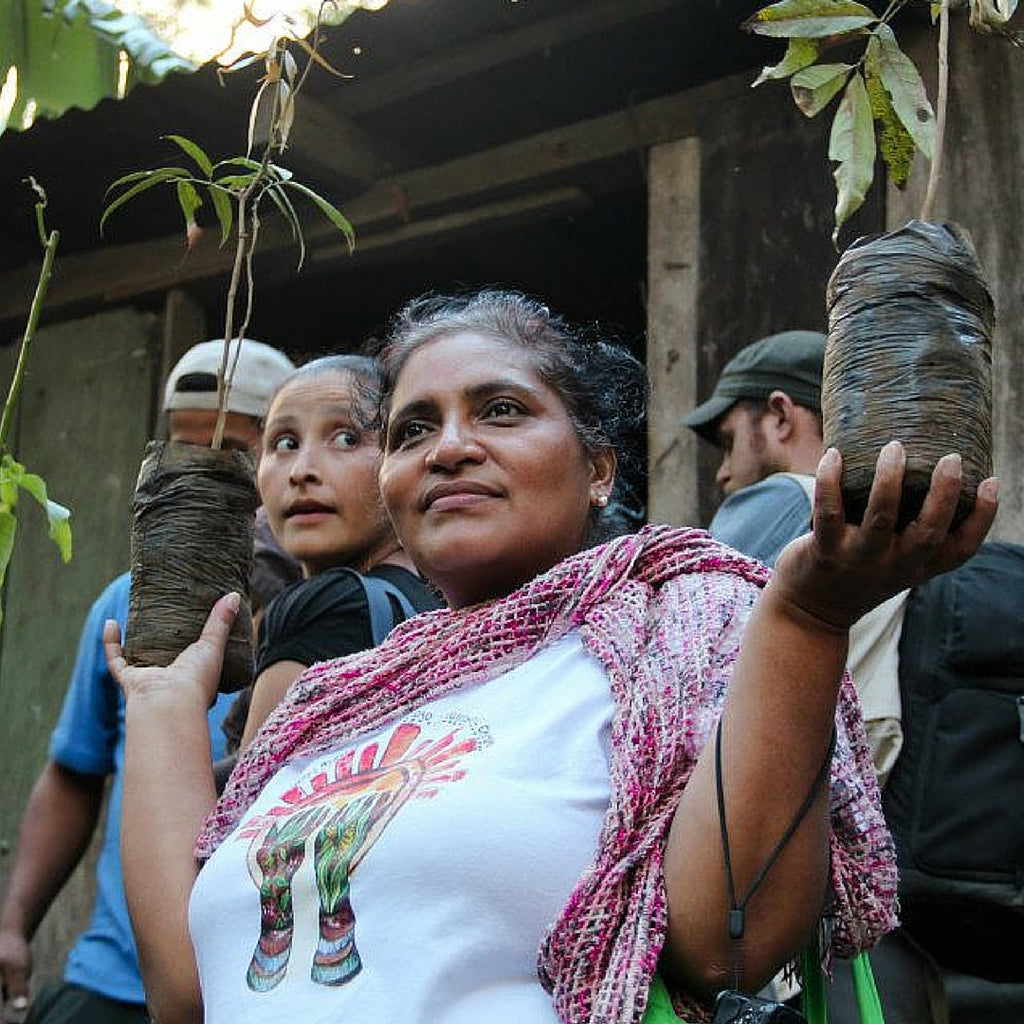
Emma Smith, HG's Coffee Bar manager, reflects on her travels in Nicaragua and the rock star women coffee farmers running the show.
Three weeks ago I was traveling around the countryside of Nicaragua. It's hard to not to spend all my time thinking of the amazing people we met, but it also feels like I never was there, as traveling usually feels to me. The part in our six day journey that stayed with me the most was our visit to meet the women coffee farmers of La Fem and Las Diosas.
La Fem (foundation between women) was founded in 1995 to promote social, economic and ideological development of rural women. La Fem operates programs to teach general wellness, sexual and reproductive rights. They also spread awareness of domestic violence. In each village they have a rural defender, a woman whom others can go to for support if domestic violence is occurring. They not only help emotionally but if need be will take the steps to charge the perpetrator.
La Fem also has education programs to promote literacy. When women pass a literacy test, they can go on to secondary school. Many of the women we met were now in secondary schools thanks to these programs. As we were discussing the importance of education in rural areas, one woman named Julia (pictured above) said, “At first some people would say to me, 'why do you want to learn when you're going to the tomb soon?' I said I might be going to the tomb, but at least I'll know something.”

Diversified organic food production is another thing La Fem is working on. They are teaching the co-ops to grow not only coffee but basic grains and vegetables. They are growing and selling hibiscus flowers for tea, and they also make jam and wine out of the flowers. The co-ops are using most of the food that they're growing for personal consumption, but they do sell their surplus at the local markets. Seed saving is being taught in the cooperatives; at La Fem headquarters you can find a whole shelf of seeds, which are given out to women on a loan.
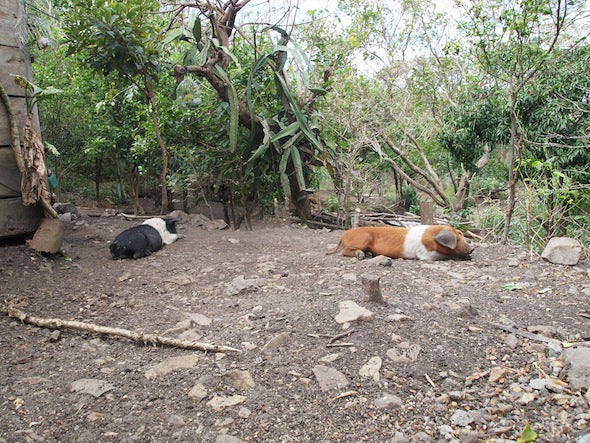
They also started a reproductive animal package, given to a woman, which comes with two pigs, a few chickens and a pregnant cow. When these animals reproduce, their offspring is given to someone else in the community.
Las Diosas ("the goddesses") is a secondary co-op born out of La Fem. Las Diosas consists of six co-operatives, 150 farmers and 191 manzanas of land (290 acres). La Fem has been striving to form this secondary co-op for many years, and it is finally happening. Las Diosas is becoming more independent; they are still relying on funding and projects from La Fem but are learning to take over their own agriculture and marketing.
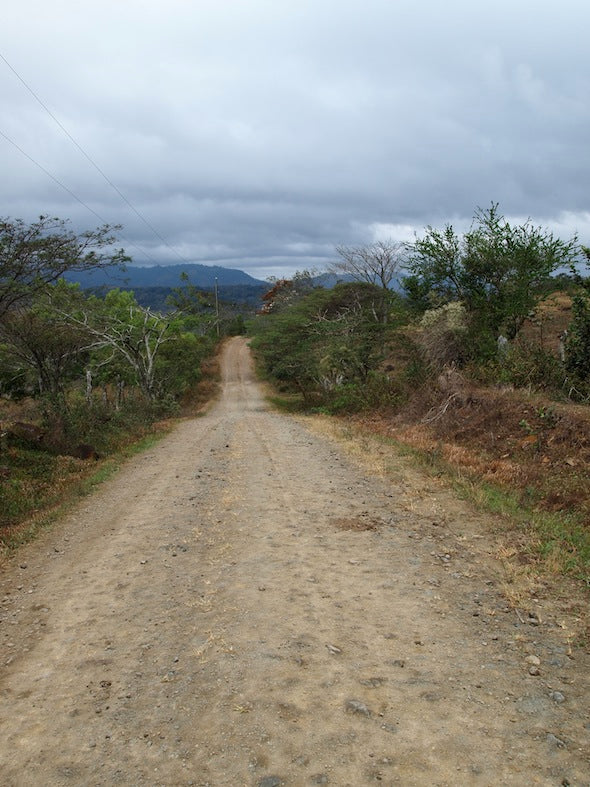
A few days into our trip, we traveled to El Colorado, a village up a winding dirt road in the mountains. This village is home to one of the six co-ops of Las Diosas, Peace and Love Among Women, which has 35 members. We were fortunate to be able to spend the afternoon with the women who are part of this cooperative. They shared with us their joys and hardships. They are all very proud women whose lives have been greatly improved by being organized.
Just like most coffee growing regions of Nicaragua, their crops have been greatly affected by la roya (coffee leaf rust). They assume 40-60 percent loss of their crops. This cooperative along with the other five are starting to meet to figure out what they can do for the future of their coffee production. We talked at length about the hardships of being a woman in such a male-dominated society. By being organized together, they have achieved so much. They not only own their own land and can financially depend on themselves but they have created a new mindset for their daughters. The new generation of women know the importance of education; they are not marrying and having children at such a young age. They grow up to understand their own bodies and that they have control over them. The older women were very proud to see the next generation becoming more independent of men and more aware of themselves as women. When asked to the group how the men are dealing with this shift of power, one young farmer said, “They may be a little pissed, but they have to get used to it.”
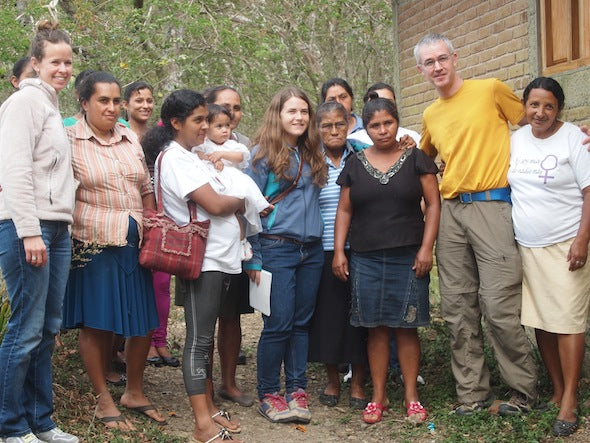
I cannot fully portray the spirit of these amazing women. They have all been through so much, the older women who carved a path to a better future for the next generations were so selfless. Some lost husbands, others were verbally abused by men and other women in the community, but they knew that a woman's place is not just in a home. They knew that they did not have to rely on men for their livelihood. With the help from La Fem, this cooperative of women grew strong and fought for what they saw was right. I have never been so proud to be a woman until my afternoon with these ladies.

